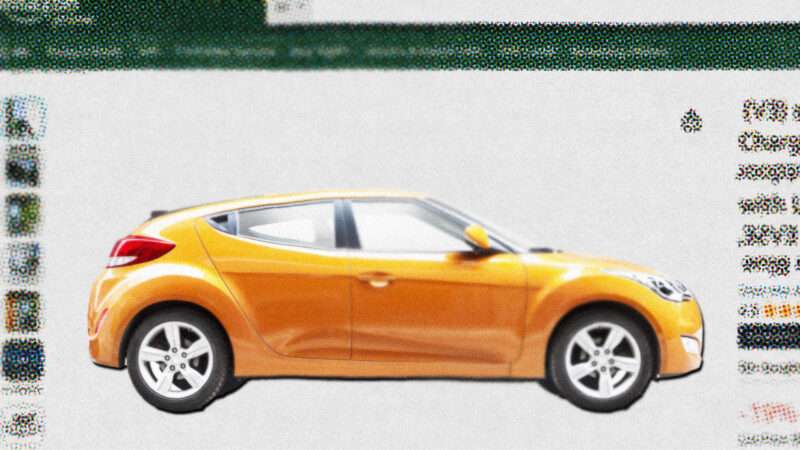
On Thursday, the fifth best-selling automaker in the United States forged a partnership with the world’s fifth-largest company by market cap when Hyundai Motors announced that customers would soon be able to order cars through Amazon. The move could be a boon for car shoppers and a good first step in undermining the power of car dealerships.
The announcement came at the Los Angeles Auto Show, as reported in The Wall Street Journal. Hyundai Chief Operating Officer José Muñoz noted that customers, frustrated with the car-buying process, “see how easy it is to buy all the products on Amazon, and they want that convenience when buying a car.” Beginning in 2024, prospective buyers will be able to search Amazon for inventory at local dealerships; they can then purchase or finance the vehicle using their chosen payment options right through Amazon’s site.
“This new shopping experience will create another way for dealers to build awareness of their selection and offer convenience to their customers,” the retailer noted in its announcement.
But importantly, the transaction wouldn’t be like most other Amazon purchases, with free two-day Prime shipping and easy returns. Customers’ transactions would still go through the local dealership, which would be responsible for delivering the final product; Amazon would only act as a middleman.
Virtually all states have laws that forbid automakers from selling directly to consumers; instead, they must contract with franchised dealerships to sell their products.
These laws came about after pressure from dealerships beginning in the 1930s. This meant that any shoppers who wanted to buy a car would have to go into a dealership and haggle with a salesman over the price.
Auto dealers, unsurprisingly, defend the practice. The National Automobile Dealers Association says that dealership mandates protect consumers, benefit local economies, and free up automakers “to invest their capital into designing, engineering and marketing great products in lieu of low-margin retailing.”
But when there’s an unnecessary middleman, customers end up paying more. “The argument that adding a mandatory layer of costs between the manufacturer and the consumer will reduce consumer prices has no basis in economics,” noted dozens of academics in a 2020 letter. Ford CEO Jim Farley estimated that having to go through franchised dealers adds an extra $2,000 to the price of each car.
Consumers don’t love the experience either: A 2016 survey found that 61 percent of car shoppers felt taken advantage of during the process, and more than half “feel anxious or uncomfortable when visiting a car dealership.” Respondents to a 2012 Gallup poll found car sales to be the most dishonest and unethical profession—lower even than being a member of Congress.
The COVID-19 pandemic was a major catalyst for online sales, as established dealers expanded home delivery options for customers afraid to go into showrooms. Newer automakers have moved online as well: Tesla switched to all-online sales in 2019, eschewing dealerships in favor of showrooms, which it owns, with salaried staff who don’t make commissions. Electric vehicle startup Rivian also has no dealerships.
Notably, this has required some clever maneuvering to get around state laws. Texas, where Tesla is based, forbids sales directly to consumers, requiring the company to ship cars manufactured in Austin across state lines before reimporting them for delivery to Texan customers. The company is even opening showrooms on Native American tribal land, where state laws don’t apply, as a workaround.
Hyundai’s partnership with Amazon is a promising step for consumers wary of the traditional dealership experience. But the better long-term solution would be for states to do away with franchise dealership laws altogether and let the market decide the best way to buy a car.
The post Starting Next Year, You Can Buy a Car on Amazon appeared first on Reason.com.
from Latest https://ift.tt/Cw6fY7k
via IFTTT